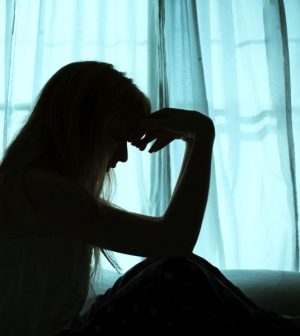- Could Your Grocery Store Meat Be Causing Recurring UTIs?
- Are You Making This Expensive Thermostat Error This Winter?
- Recognizing the Signs of Hypothyroidism
- 10 Strategies to Overcome Insomnia
- Could Artificial Sweeteners Be Aging the Brain Faster?
- Techniques for Soothing Your Nervous System
- Does the Water in Your House Smell Funny? Here’s Why
- Can a Daily Dose of Apple Cider Vinegar Actually Aid Weight Loss?
- 6 Health Beverages That Can Actually Spike Your Blood Sugar
- Treatment Options for Social Anxiety Disorder
Many Childhood Cancer Survivors in Denial About Future Health Risks

Many adult survivors of childhood cancer don’t worry about their future health and may skip crucial screenings and lifestyle changes, a new study shows.
“Some of the increased health risks faced by survivors of childhood cancer can be minimized through early detection and intervention, as well as adoption of healthy behaviors,” said study co-leader Todd Gibson, from St. Jude Children’s Research Hospital in Memphis, Tenn.
His team focused on questionnaire responses from more than 15,600 adult survivors of childhood cancer (median age 26) and nearly 4,000 cancer-free siblings.
About 31 percent of the survivors said they were not concerned about their future health, and 40 percent were not concerned about developing cancer. Those rates were slightly higher than or similar to their siblings.
Survivors who received high doses of radiation when they were children were more likely to be concerned about their future health. But 35 percent of these high-risk survivors were not concerned about developing cancer and 24 percent were not concerned about their future health, according to the study published June 25 in the journal Cancer.
Adults survivors of childhood cancer who aren’t concerned about their future health may be less likely to get screened for cancer or to take steps to reduce their risk, the researchers suggested.
“Many survivors do not have survivor-focused medical care, so it is important for them to be aware of their health risks and advocate for appropriate guideline-based care,” Gibson said in a journal news release.
“A lack of concern about potential health risks may be a barrier to this self-advocacy and adoption of healthy behaviors; however, it is important to note that not all survivors are at high risk, so for some a lack of concern is likely appropriate,” Gibson added.
More information
The American Cancer Society has more on childhood cancers.
Source: HealthDay
Copyright © 2026 HealthDay. All rights reserved.










